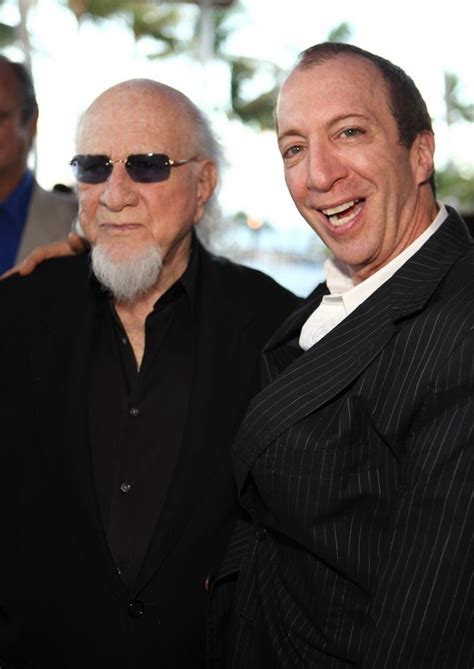A Quote by Tom Silverman
The record business is an oxymoron. In the 1960s, there was an upside to selling plastic discs so labels took the risk - they paid for the record, for marketing, promotion, publicity, everything it took to make the artist a star. But now we have to go back to the venture capital model. The business is stopping and everyone's complaining but you can't blame labels. It's a shitty business. You do it because you're passionate, or because it's what you've always known. But if you lived through the nineties, nobody is thinking this is great compared to what it used to be.
Quote Topics
Always
Artist
Back
Because
Blame
Business
Capital
Compared
Complaining
Discs
Everyone
Everything
Go
Great
Known
Labels
Lived
Make
Marketing
Model
Nineties
Nobody
Now
Oxymoron
Paid
Passionate
Plastic
Promotion
Publicity
Record
Risk
Selling
Star
Stopping
Thinking
Through
Took
Upside
Used
Used To Be
Venture
Venture Capital
Related Quotes
The music business has made a 360. It's a whole 'nother game. It's not nearly what it was. And I fear for it, because, you know, with the advent of the computer and online and downloading and all these things, they have destroyed - that stuff has destroyed the record business, not the music business, but the record business. The music business is well, and it's alive and thriving. Now, I hope something happens to turn it back around to the point whereas it's - you're earning a living from writing your songs, from your work, you know, because it's not like that anymore.
The music business is suffering because fewer artists are being invested in. Labels are putting in less money, taking fewer risks and signing half as many artists as they did 10 years ago. Everything is risk averse right now and there are two ways to deal with a business situation like this: either reduce your risk or increase your return. They're reducing their risk to the bone and looking for ways with their 360 deals to increase their return. They're still not making money. Artists are suffering. Labels, or music investors, are suffering.
There's definitely some sort of dissent brewing between record labels, publishing companies and artists [about the compensation they get from streaming services] Spotify is returning a HUGE amount of money [to the record labels]. If we continue growing at our current rate in terms of subscriptions and downloads, we'll overtake iTunes in terms of contributions to the recorded music business in under two years.
Record industry's not so much against artists, but certain people are just wicked people that sit up in the industry who go against the artist. The thing is, if you're in the recording business, where's our health benefits? Where's the royalties from when you put stuff on labels in different countries? And now, with all these 500 cable channels, you want your mechanical royalties, your licensing. There's so much technology that you've got to stay on top. They always try to tell you, "Oh, don't worry about the business side, just do the music."
I think record cover sleeves really led towards, but at the same time the album as we know it didn't come into being until mainly after the Second World War because record labels realized they'd be able to make a lot more money putting all the singles of an artist onto one album and selling the whole album as a kind of a concept.


































